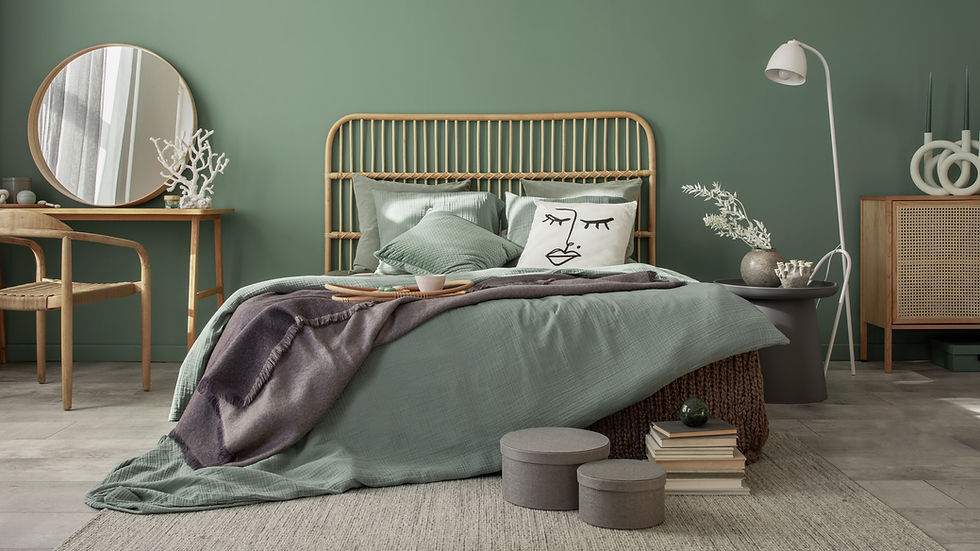Fit to Snooze: 5 Personal Trainer-Approved Tips for Better Sleep!
- Julia Zubko

- Apr 20, 2023
- 4 min read

Have you ever wondered why you are smashing your fitness goals on some days, yet you can barely motivate yourself to go for a walk on others? This is because your physical performance depends on the previous night's sleep. Studies have shown that athletes who get enough sleep have better reaction times, improved hand-eye coordination, and increased stamina. They also have a lower risk of injury and are less likely to experience fatigue during competition.
A good night's sleep is crucial for anyone who wants to perform at their best. In addition, it helps with faster recovery from training sessions and increases the production of growth hormone
which is vital for muscle growth and tissue repair.
Big Pharma companies produce a myriad of sleeping drugs (those starting with Z in their names) and herbal sleep remedies. However, I am convinced that health does not come in a pill. So, how can you improve your sleep naturally and, as a result, maximise your gym performance? I practice 5 natural ways to improve my sleep hygiene. They are easy to implement, give you the best night's sleep possible, and improve your training performance.
1. Control the time of your last meal.
I have my dinner at least three hours before going to bed. If our stomach is full, the body has to raise the temperature to assist digestion which is precisely the opposite of what we need for a good night's sleep. Needless to add that you should avoid alcohol before bed. Although alcohol may make you feel sleepy at first, it actually disrupts your sleep later in the night. So if you want to avoid waking up in the middle of the night, skip that glass of wine.
2. Remove daylight sources
I wear my blue light-blocking glasses two hours before bed, usually around 7:30 pm. Our circadian rhythm can be fooled if we are surrounded by bright blue light sources. The brain perceives the environment as daytime and postpones melatonin synthesis. It makes it harder to fall asleep. So disconnect from electronic screens at least one hour before bedtime or put your electronic devices in the red filter screen. I also keep my bedroom as dark as possible with blackout curtains and an eye mask in the early summer mornings. Remember to turn off the green lights emitted by the computer, modem and other electronic devices. They are also the source of disruptive blue light.
3. Engage in mindful activity before bed.
I find book colouring very relaxing. We need to create a relaxing bedtime routine that can help signal our body that it's time to slow down and prepare for sleep. A few things you can do as part of your bedtime routine include reading, taking a bath, or stretching. Many self-help books also suggest meditation. However, it could be a problematic practice as it requires time, place and know-how. Meditation is an activity that allows your mind to concentrate on only one thing at a time. There are other activities that you can try in the evenings. Studies demonstrate that 15 minutes of colouring activity in the evening improve your sleep latency. Another good idea is to read or watch something light-hearted, funny and relaxing. Thrillers, horror movies, and anything that will raise your heart rate and cortisol level will shift the midpoint of your sleep resulting in sleep deprivation the following day. So, choose what to watch in the evenings carefully.
4. Stick to the same time for going to bed and waking up.
Sticking to the same sleep schedule based on my chronotype is key for me. I've learned that this consistency is vital for two reasons: first, it helps regulate my body's natural sleep cycles. Second, it trains my body to expect sleep at certain times, making falling and staying asleep easier. I've also come to understand the importance of deep sleep in restoring and rejuvenating the body, improving memory, and strengthening the immune system. Unfortunately, when I go to bed late, I tend to have less deep sleep, which can lead to feeling tired and sluggish the next day. So, make it a priority to prioritise getting enough deep sleep and sticking to a regular sleep schedule to ensure that you are well-rested and ready to take on whatever the day brings.
5. Control the temperature of your bedroom.
Ensuring my bedroom is cool and comfortable is crucial for a good night's sleep. I aim for a temperature of around 19 oC Celsius because I've learned that a cooler environment can help me fall asleep faster and stay asleep longer. I've also learned that our body temperature naturally drops as we sleep, so setting an initial bedroom temperature that facilitates this process can help me get to sleep more quickly. On the other hand, when the bedroom temperature is too warm, I tend to feel restless and uncomfortable, which can lead to disrupted sleep patterns. So by keeping your bedroom cool and comfortable, you can improve the quality of your sleep and wake up feeling refreshed and energised.
As someone who values a healthy lifestyle, I've learned that better sleep habits are essential for peak physical performance. By following these simple tips, you, too, can improve the quality of your sleep and reap the rewards of better athletic performance. So take time out of your busy schedule to prioritise adequate sleep and start performing better in a matter of days!





Comments